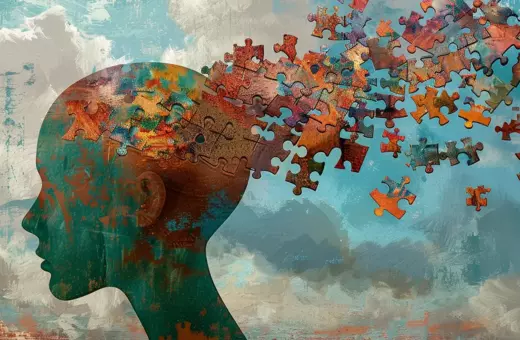If we sincerely believe that a particular choice is the right one to make, all things considered, then how is it possible that we can voluntarily do something else? It’s not true that we’re weak willed; rather, our behavioural choices reveal our true values. Rebecca Roache shows how lessons from Socrates and R.M. Hare can help us boost productivity and life satisfaction.
It might feel pretty obvious to you that you’re weak-willed. You feel it, after all - every time you find yourself hitting the snooze button on the alarm when you know you ought to get out of bed; every time you scroll through cat videos on Instagram when you know you ought to be writing; every time you help yourself to a third slice of cake when you know you ought to order a kale smoothie instead. When you find yourself in these situations, there’s often a bit of shame, a bit of guilt, a bit of frustration. In many cases, the subsequent conviction that we’re weak-willed shapes our entire approach to motivating ourselves.
 SUGGESTED READING
The free will debate has real-world consequences
By Lewis Waller
SUGGESTED READING
The free will debate has real-world consequences
By Lewis Waller
Yet it might not be that simple. There’s a very long history in philosophy of being puzzled by the mere possibility of weakness of will. If it’s really the case, as it seems to be in the sorts of situation I’ve just mentioned, that we sincerely believe that a particular choice is the right one to make, all things considered, then how is it possible that we can voluntarily do something else? How is it possible to hit the snooze button when the alarm goes off when what we really want, all things considered, is to get out of bed? Usually, we’ll explain this sort of situation by saying something like, ‘Well, yes, all things considered I really do want to get up early, but at the moment the alarm goes off I lose sight of that and just want to go back to sleep’. This sort of explanation is satisfactory in the sense that it does a decent job of capturing how it feels to be in that situation. Of course the lure of a warm bed is hard to resist, regardless of how well the rest of the day (and maybe even the rest of our lives) would go if we were to get up. But that hasn’t been enough to satisfy philosophers.
This puzzle goes all the way back to Ancient Greece, and to Socrates, who didn’t believe in the possibility of weakness of will. In Plato’s Protagoras, Socrates says ‘nobody does anything under the idea or conviction that some other thing would be better and is also attainable, when he might do the better.’ What does this mean for you, lying in bed, rudely awakened by your alarm, and reaching to hit the snooze button? Well, it means that, at least at that moment, you don’t really think that getting out of bed would be better, all things considered. You can’t think that, according to Socrates. What you really think is the best course of action is going back to sleep. There’s no weakness of will involved. You’re just doing what you value most. It might be that, at times when your alarm is not buzzing at you, you value something different. But that’s irrelevant to the question of what you do at the moment your alarm is buzzing.
___
We’re rational beings, acting in harmony with our values - at least, with the values we hold at that moment
___





















Join the conversation